The first settlements on the site of the present Irkutsk appeared 50 thousand years ago. But Irkutsk is much younger as a city: its history began with the foundation of an Ostrog (Irkutsk Kremlin (fortress)) in 1661 near the Irkut River. The Spasskaya Church (Church of Our Saviour) and Znamensky Monastery arose next to it in the following 30 years. By the end of the 17th century, Irkutsk was a significant trading city, as the roads to China went through it. Furs were exported to China from here, while the goods brought home included sugar, tea and cloth. The largest dynasties of Siberian merchants grew rich just on sale of furs to China. Some merchants went to even greater lengths: the native of Irkutsk Grigory Shelikhov led an expedition to America (to Alaska, the Aleutian Islands and the Pacific coast). Later he founded a Russian-American trading company, which became an effective means for developing and colonizing a number of lands in America. Industrialists and sailors for trade expeditions to Alaska and the Aleutian Islands were recruited exactly in Irkutsk.
Irkutsk has also a sorrowful fame. It was long used as a place for exiles. Thus, a writer Alexander Radishchev was exiled here in 1791 for his too liberal work «A Journey from St. Petersburg to Moscow», while Znamensky Convent was home to the wives and daughters of the capital politicians who fell out of graces with the authorities. It is known that the Circum-Baikal Highway, a wheeled postal highway connecting Irkutsk with another trading city, Kyakhta, was built by exiles. The convicts also worked at the local cloth mill. Irkutsk was a settlement land for Decembrists — participants of the opposition movement who organized an uprising in St. Petersburg in December 1825 against the autocracy and serfdom. Trubetskoy, Volkonsky and other Decembrists were confined at hard labor in various enterprises and mines on the outskirts of Irkutsk, and later they were allowed to settle in the city. Irkutsk Regional Memorial Decembrists Museum will tell you how they arranged their life in the city after imprisonment at hard labor.
The twentieth century in Irkutsk began with riots: the railway employees, public servants and workers were on strike. In 1917-1920s the city was a scene of a bitter fight between the old and the new Russia. The Bolsheviks occupied Irkutsk only for a few months and in July 1918 voluntarily abandoned it, giving way to the Czechoslovak Corps and the Provisional Siberian Government. A year later, Admiral Kolchak also moved to the city, where he was executed by the Bolsheviks in 1920. In Soviet times, Irkutsk was a major industrial center, where an aircraft factory, a metallurgical plant and several other factories operated, as well as a hydroelectric power station was built. During the Great Patriotic War several enterprises were evacuated here from the western part of the USSR.
Today Irkutsk is a developed cultural and tourist center. The best part of tourists, coming to Irkutsk, heads to Lake Baikal, since it is the most pleasant place where you can admire the beauties of nature, get acquainted with the culinary traditions of the native peoples of the Baikal region and feel the mystical atmosphere that Baikal is famous for. And this is not the only natural treasure of the Irkutsk Region. Here there are several large salt pools with adjacent resorts: Angara, Bratskoye Vzmorye and Usolye-Sibirskoe. The cultural component of the stay in Irkutsk is provided by its museums, which will help you to learn more about the development of these places and the life of the native peoples of the Baikal region. In September Irkutsk hosts the International Music Festival «Stars on the Baikal», founded by a native of Irkutsk, world-famous pianist Denis Matsuev.
The cuisine in these parts is an alloy of culinary traditions of several peoples. The Baikal cuisine is all about fish dishes: smoked, naturally dried, fried omul, stroganina — frozen fish cut into thin shavings, raskolotka — a version of stroganina, sugudai — a dish of fresh fish. The most mysterious soup you can eat here is the Baikal ukha. It is believed that only fishermen know its recipe, but it is precisely known that there is vodka among the ingredients. Worth a try in Irkutsk are different options of large meat dumplings — Buuzy and Gruzinchiki. And one of the most popular meat dishes is a taiga-style meat: beef or pork is fried at first, and then baked with mushrooms and greens. In these parts, this dish is also served with berries — red bilberries or cranberries.
Irkutsk is certainly a city deserving attention — both as a point on the way to Baikal and as an option for a separate trip. Its nature, unique culinary dishes, the preserved wooden architecture and history will help to get an idea of Siberia, one of the most interesting Russian regions.
Get directions
The easiest way to get to Irkutsk is from Moscow. Many airlines perform both direct flights from the capital and with a transfer in Novosibirsk. The direct flight lasts 5-6 hours. There are also direct flights to Irkutsk from St. Petersburg, Novosibirsk, Omsk and Vladivostok. A train ride from Moscow to Irkutsk will take three days.

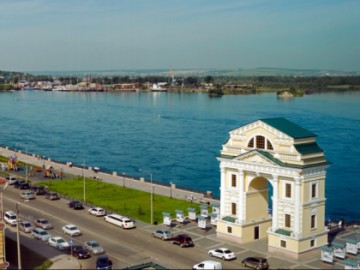
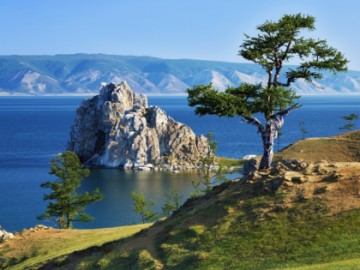


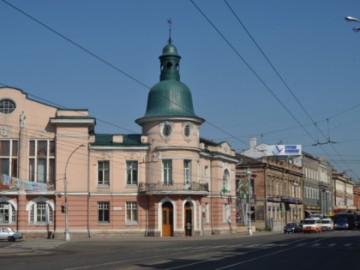
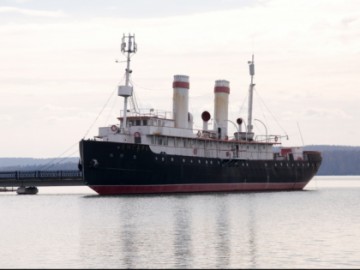
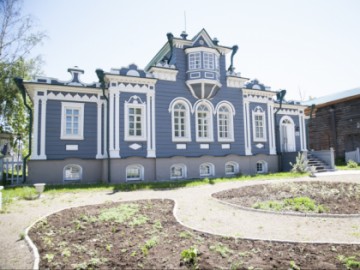
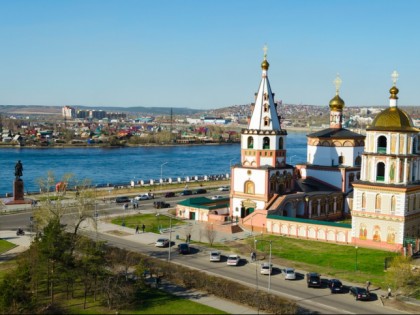
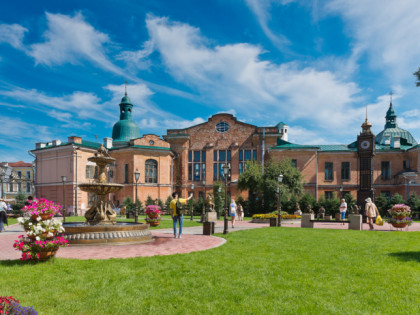
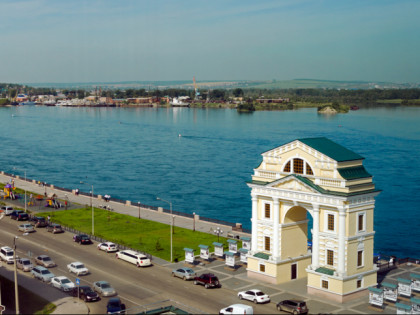
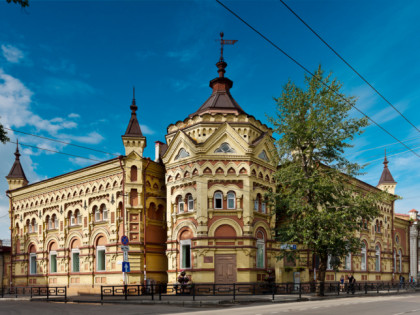
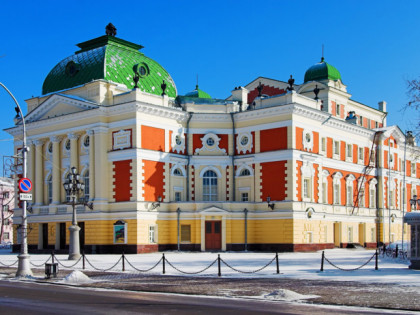
 Museums and Exhibitions
Museums and Exhibitions
 Other places
Other places
 Architectural Monuments
Architectural Monuments
 Temples and places of worship
Temples and places of worship
